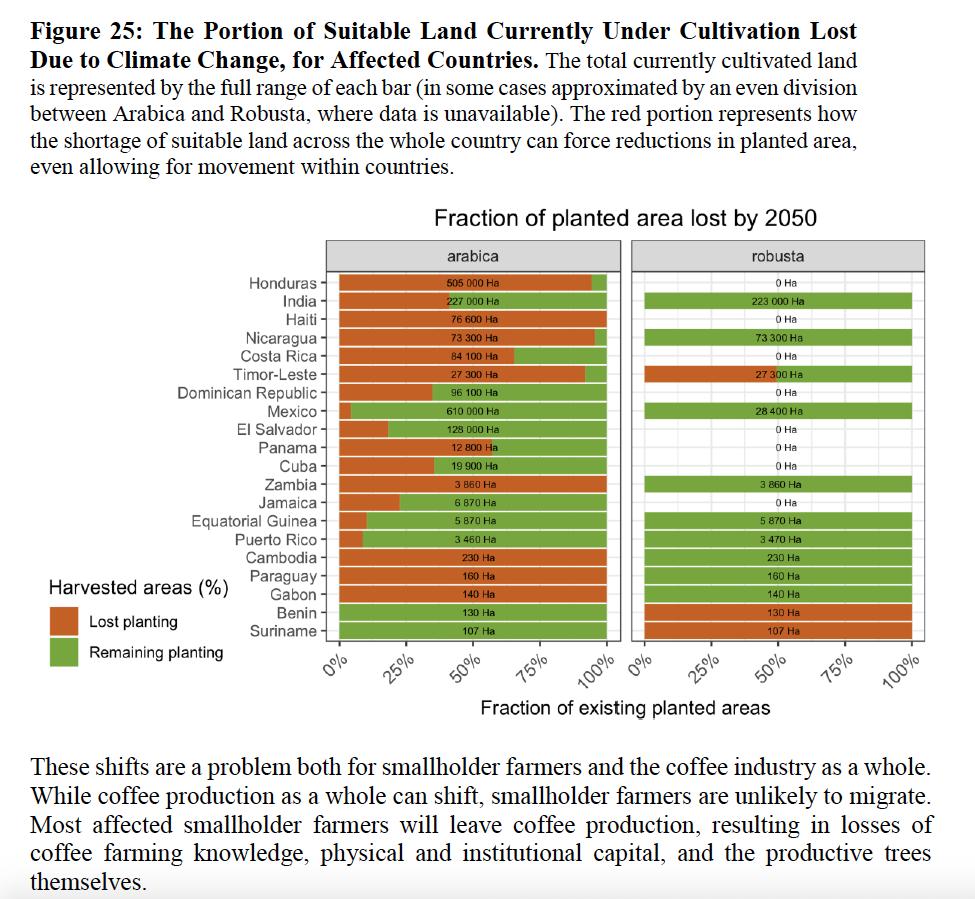
For our #WeekendRead, we recently published a story on coffee in South Sudan:
"A coffee treasure found, and potentially lost again"
worldcoffeeresearch.org/news/coffee-tr…
🧵(1/15)
"A coffee treasure found, and potentially lost again"
worldcoffeeresearch.org/news/coffee-tr…
🧵(1/15)
A new research paper confirms that South Sudan is a center of evolutionary origin for Coffea arabica, and the plant populations in the area possess unique genetic diversity. The open-access paper can be found here:
frontiersin.org/articles/10.33…
(2/15)
frontiersin.org/articles/10.33…
(2/15)
The paper is based on a study led by Dr. @KrishnanSarada, who was the lead author of the Global Coffee Conservation Strategy, co-published by World Coffee Research and the Crop Trust.
(3/15)
(3/15)
Dr. @KrishnanSarada, along with a group of researchers that included WCR founder Tim Schilling and coffee botanist Aaron Davis of @kewgardens, traveled to South Sudan’s Boma Plateau in 2012. The expedition was the subject of this @WSJ article:
wsj.com/articles/SB100…
(4/15)
wsj.com/articles/SB100…
(4/15)
The purpose of the journey was to find wild strains of Coffee arabica growing in the country to confirm historical accounts from the 1940s that South Sudan might be a center of origin for arabica coffee.
(5/15)
(5/15)
Finding wild arabica beyond Ethiopia is crucial since arabica is “plagued by low genetic diversity, compromising disease resistance, climate resiliency and sensory potential. Access to the wider genetic diversity of this species may circumvent some of these problems.” (6/15)
Once the group found wild arabica growing in the Boma Plateau, researchers collected leaf tissue and assessed the genetic diversity of samples from the Boma Plateau against existing inventories of wild arabicas and farmed cultivars from Ethiopia, Yemen, & around the globe.(7/15)
The researchers’ results both confirmed the Boma Plateau as a center of origin for arabica coffee and indicated that South Sudan’s wild populations of coffee are genetically distinct from arabicas described in the genetic diversity literature so far. (8/15)
According to the paper, “This newly identified genetic diversity within arabica could have the potential for crop improvement through selection and use in breeding programs.” (9/15)
While the findings of South Sudan wild arabica are exciting in theory, the reality is more sobering. The plants found on the expedition were not in healthy shape. Since the team only collected leaves from the plants rather than seeds, they were not able to be replanted. (10/15)
Just a year after the expedition, civil war broke out. Violence has since continued and it has not been possible for researchers to return to the Boma Plateau. They are concerned that the few plants discovered in 2012 may already be lost due to widespread deforestation. (11/15)
The authors conclude, “Given that the Boma populations represent a distinct genetic entity for arabica diversity, and that there is still substantial genetic diversity within the Boma metapopulation, it is imperative that all attempts be made to conserve this diversity.” (12/15)
A more hopeful story lies in the recent rediscovery of Coffea stenophylla in the wild, a coffee species tolerant to high heat located in Sierra Leone. Stenophylla is also held in multiple coffee genebanks around the world. (13/15)
dailycoffeenews.com/2021/04/29/wha…
dailycoffeenews.com/2021/04/29/wha…
Since Stenophylla has been well preserved globally means that it’s available for researchers to explore its potential to address the challenges of the 21st century, like heat tolerance and cup quality, and bring a new coffee species to farmers interested in diversifying. (14/15)
The urgency of conservation increases yearly. The estimated cost to protect coffee genetic diversity forever by shoring up the world’s most important coffee genebanks is $25 million. The industry, and the broader global community, is invited to participate in that effort. (15/15)
• • •
Missing some Tweet in this thread? You can try to
force a refresh






